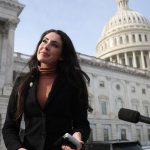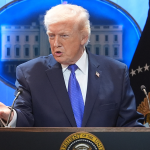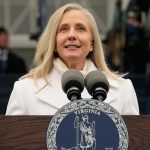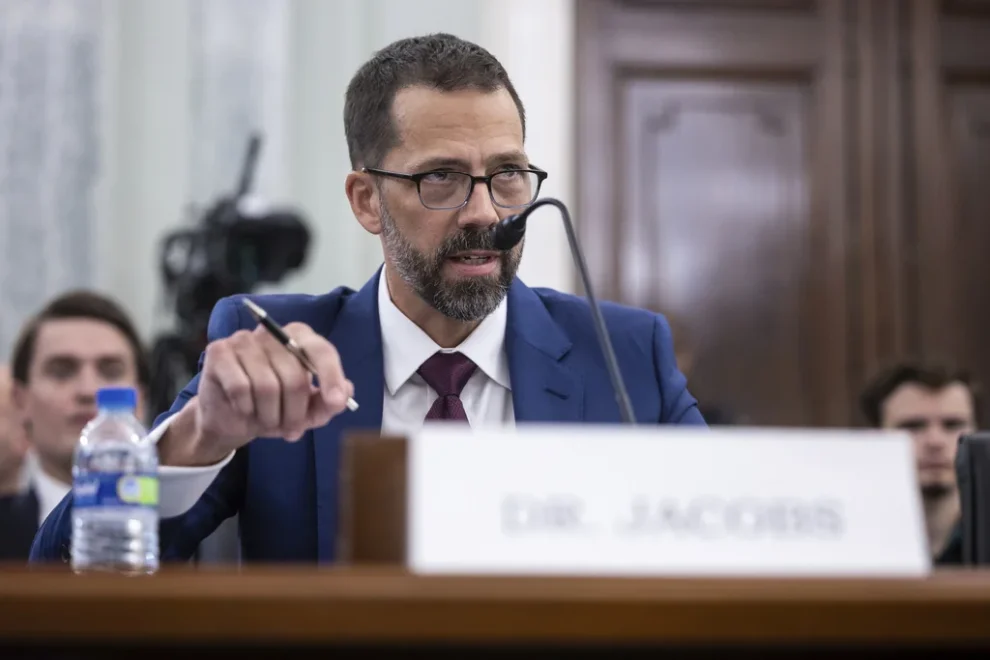President Donald Trump’s nominee to lead the National Oceanic and Atmospheric Administration pledged to prioritize rebuilding the National Weather Service after a wave of firings and buyouts, while simultaneously defending proposed cuts to weather and climate research.
Testifying before the Senate Commerce Committee on Wednesday, Neil Jacobs, tapped to lead NOAA, called for sharper forecasting tools and clearer public alerts, just days after historic flooding in Central Texas left more than 100 dead and dozens missing.
“If confirmed, I want to ensure that staffing weather service offices is a top priority,” Jacobs said.“It’s really important for the people to be there, because they have relationships with people in the local community,” he said. “They’re a trusted source.”
Although Jacobs wasn’t asked to comment on the causes of the Texas flooding, he underscored the importance of ensuring that all 120-plus forecast offices across the country are fully staffed.
The hearing came one week after the administration proposed eliminating NOAA’s Office of Oceanic and Atmospheric Research, the agency’s hub for climate science. The move is part of a broader federal reorganization that includes Trump’s push to revamp, and possibly eliminate, the Federal Emergency Management Agency.
Lawmakers from both parties expressed concern over the proposed cuts, questioning whether NOAA could still deliver timely, accurate forecasts during extreme weather events.
Sen. Maria Cantwell (D-WA), the committee’s top Democrat, warned that eliminating over 2,000 jobs and slashing $2.2 billion from NOAA’s budget would jeopardize its “core mission,” especially research critical to improving forecast accuracy and lead times.
Jacobs insisted NOAA would still meet its mission, with many functions shifted to the National Weather Service or Ocean Service. But Cantwell pushed back, warning against gutting essential programs or outsourcing responsibilities. She likened the plan to Boeing’s failed decision to cut safety inspectors and rely on self-certification, which led to fatal oversight failures.
“That didn’t turn out very well, because they missed a lot, because it turned out that those safety people actually were doing something really critically important,” Cantwell said. “I’m cautioning you, and I don’t agree with the Trump administration proposal on cutting these programs.”
Sen. Ed Markey (D-MA), a vocal opponent of Trump’s proposed NOAA budget for fiscal 2026, pressed Jacobs on whether he backed the spending reductions.
Jacobs responded, “Yes, I support the president’s budget.”
NOAA was one of the agencies targeted by the Heritage Foundation’s Project 2025, which called for the administration to break up the climate agency. The policy blueprint called the department “one of the main drivers of the climate change alarm industry.”
Jacobs repeatedly highlighted the possibility for partnerships between government scientists and private industry, a key element of the Project 2025 policy framework promoted by Republican strategists. However, when Sen. Ben Ray Luján (D-NM) pressed him on whether Americans should be required to pay for access to top-tier forecasting data, Jacobs replied that they should not.
In an exchange with Sen. Ted Cruz (R-TX), Jacobs described steps he would take to modernize NOAA Weather Radio, a warning system he credited with saving his life during a 1996 tornado. Jacobs also went on to propose upgrading the agency’s communications infrastructure to better reach the public during overnight emergencies.
As part of that, he pushed to move forecasting systems to the cloud, which would allow for faster data processing and enable forecasters to operate remotely, including from emergency operations centers, something he called “really advantageous.”
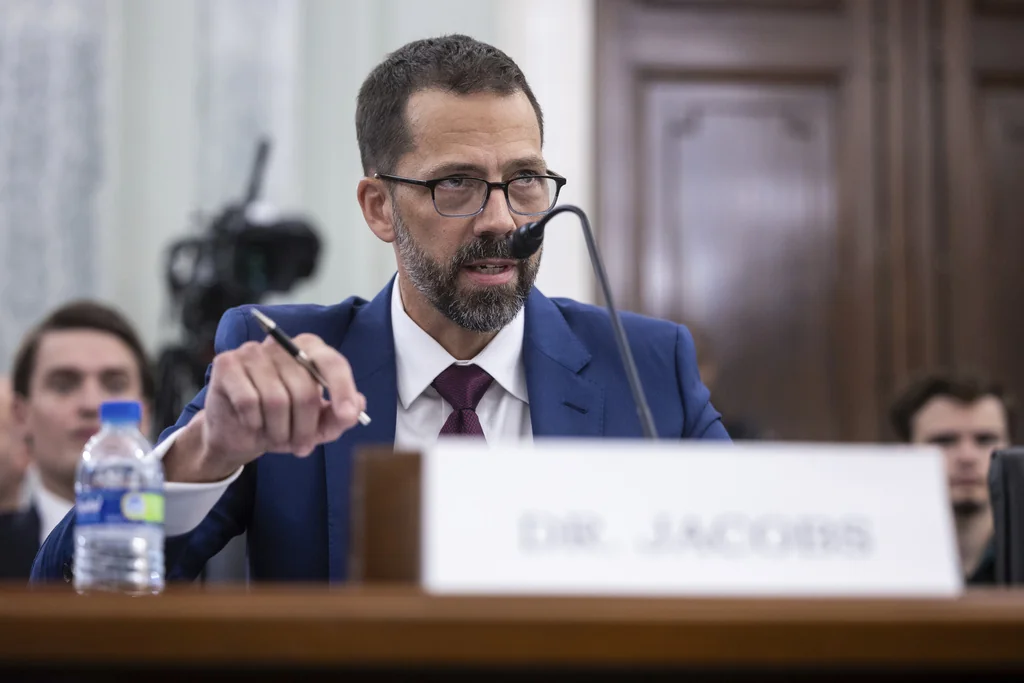
Addressing Cruz’s concerns about U.S. forecasting lagging behind Europe, Jacobs said narrowing the gap would depend on improving data collection, advancing assimilation methods, and unifying the country’s modeling systems.
Jacobs’ nomination comes amid renewed scrutiny over the 2019 “Sharpiegate” controversy. As acting NOAA administrator, he approved a statement supporting Trump’s false claim that Hurricane Dorian threatened Alabama. The move contradicted local forecasts and led to a finding that Jacobs had violated the agency’s scientific integrity policy.
Luján pressed Jacobs on the incident, noting his past defense of the decision and the pressure officials reportedly felt at the time. Asked whether he would make the same call again, Jacobs admitted there were things he would do differently and said he had since implemented internal safeguards. When Luján interrupted to ask directly whether he would sign off on a false statement under political pressure, Jacobs answered, “No.”
Tensions flared again when Sen. Markey confronted Taylor Jordan, Trump’s nominee for NOAA deputy administrator, about his past use of a social media handle referencing the climate change-denying book The Greatest Hoax by former Sen. James Inhofe.
“It was a young man’s attempt at wit,” Jordan said. “There is really no deeper meaning.”
Markey shot back, “If you want to be a comedian, you should maybe go to open mic night.”
TRUMP’S NOAA PICK NEIL JACOBS SAYS HE WOULDN’T REPEAT ‘SHARPIEGATE’ MISTAKE
Throughout the hearing, Jacobs walked a careful line between NOAA’s scientific mission and the president’s resistance to climate science. When Sen. John Hickenlooper (D-CO) asked whether NOAA was spending enough on core research, Jacobs replied, “I don’t know if you can spend too much on research.”
The proposal to eliminate NOAA’s climate research arm would transfer some responsibilities to the National Weather Service, but others could be canceled altogether. The plan still requires congressional approval, and lawmakers have until the end of September to finalize the budget or pass a temporary funding measure to avoid a government shutdown.


